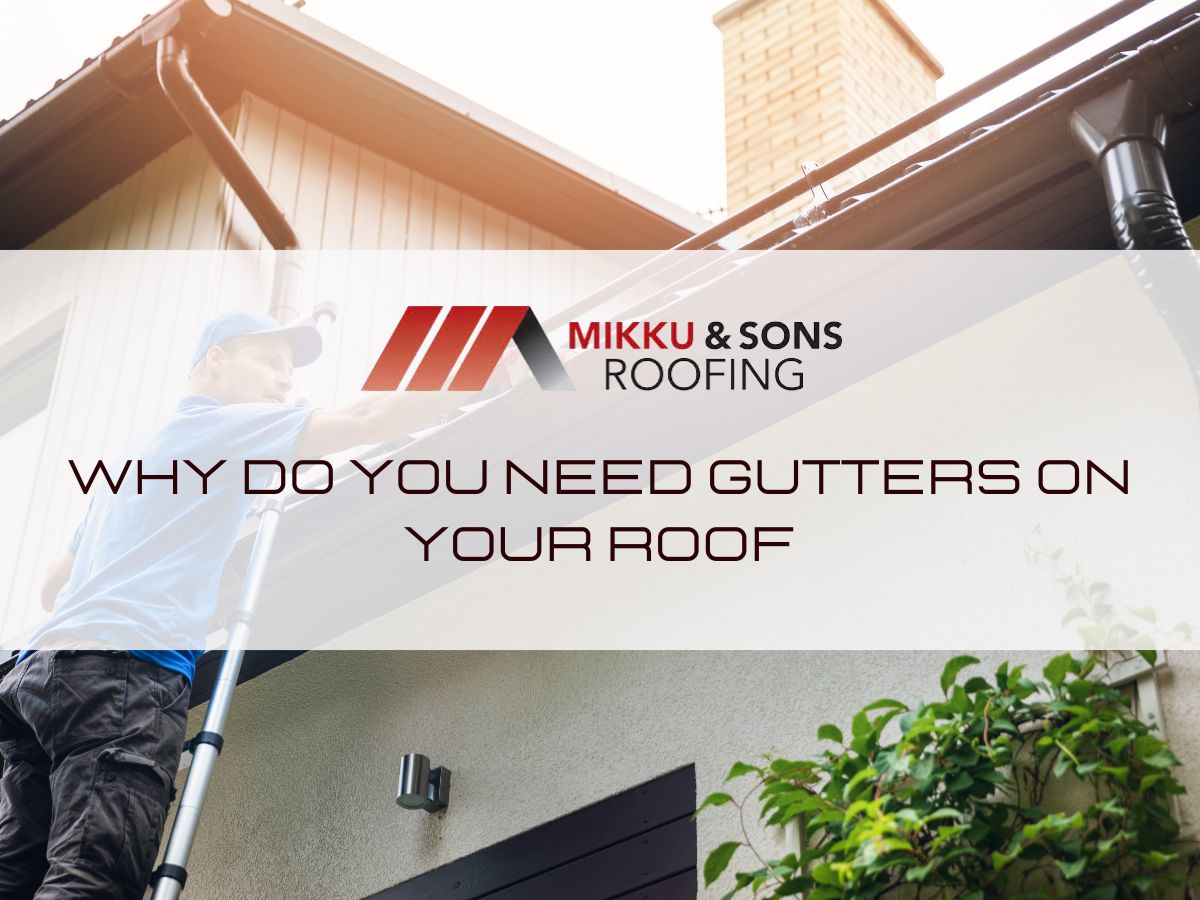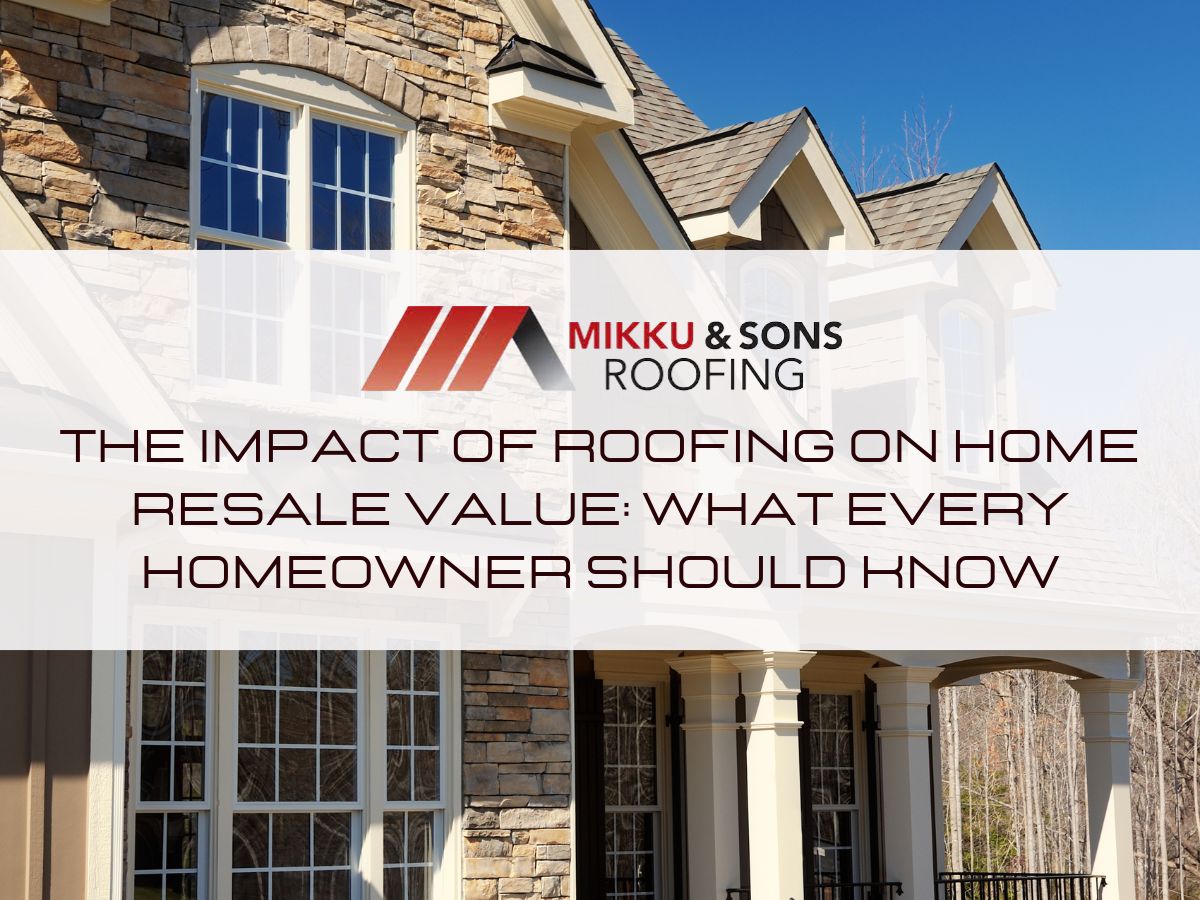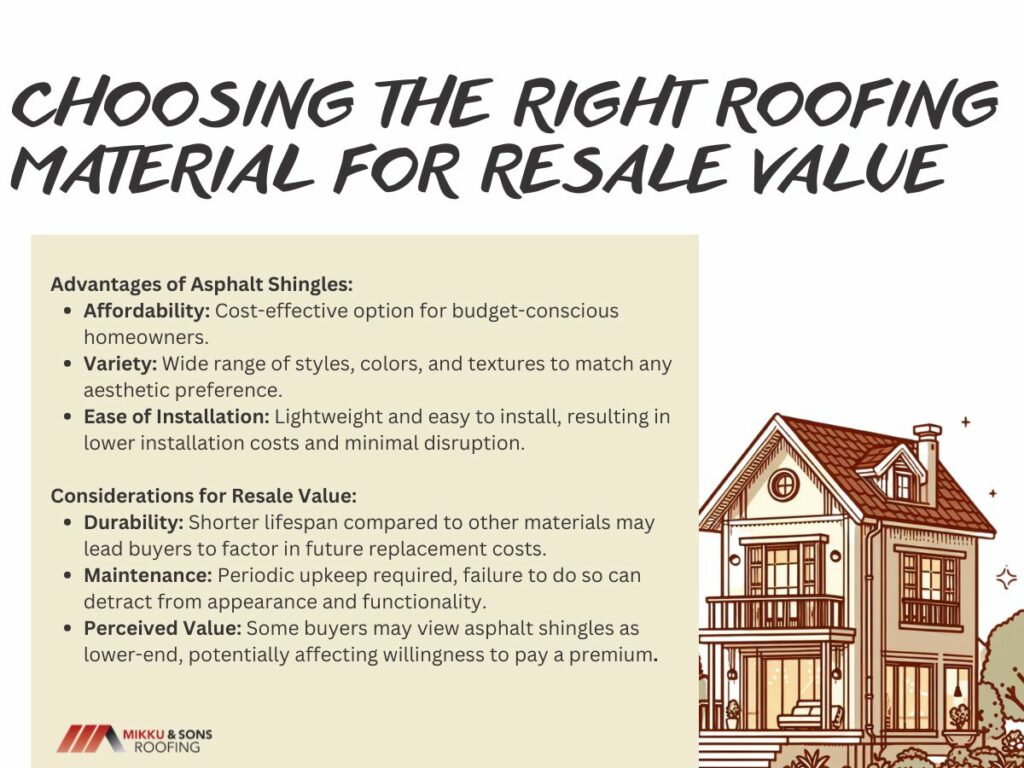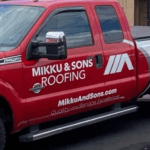

Your roof is more than just a protective covering—it's a significant factor in determining the overall value and appeal of your property. In this blog, we'll explore the importance of choosing the right roofing material, focusing on asphalt shingles, and how it can affect your home's resale value.
Whether you're considering a roof replacement or building a new home, understanding the implications of your roofing choice is essential for maximizing your investment and attracting potential buyers.
The condition and type of roofing play a pivotal role in determining the resale value of a home. Potential buyers often scrutinize the roof as it is a critical component of the house's structure and provides protection from the elements. Here's how the condition and type of roofing can impact the resale value:
The condition of the roof significantly influences the resale value of a home. A well-maintained roof suggests to potential buyers that the property has been cared for and is less likely to have underlying issues. Conversely, a neglected roof with visible signs of damage or wear can deter buyers and lead to lower offers.
Common issues such as damaged or missing shingles, leaks, sagging areas, or signs of mold and mildew can signal potential problems with the roof's integrity. These issues not only decrease the aesthetic appeal of the property but also raise concerns about the need for immediate repairs or replacements, thus reducing the perceived value of the home.
An old roof nearing the end of its lifespan can also affect resale value. Buyers may view an aging roof as a future expense, prompting them to negotiate a lower price to accommodate the anticipated repair or replacement costs.
The type of roofing material used can also impact the resale value of a home. Different materials offer varying levels of durability, longevity, and aesthetic appeal, which can influence buyers' preferences and perceptions of value.
For instance, asphalt shingles, the most common roofing material, are relatively affordable and easy to install, making them a popular choice among homeowners. However, they typically have a shorter lifespan compared to other materials and may require more frequent maintenance and replacement, which could affect the long-term value of the property.
On the other hand, materials like metal roofing or clay tiles are known for their durability and longevity, offering potential buyers the reassurance of a roof that will last for decades with minimal maintenance. While these materials may come with a higher upfront cost, their durability and aesthetic appeal can enhance the resale value of the home.
A home's roofing system is its first line of defense against the elements, making it a critical factor in determining resale value. However, several common roofing issues can significantly lower the perceived value of a property:
Damaged or missing shingles are among the most common roofing issues that can detract from a home's resale value. Whether due to age, weather exposure, or improper installation, missing or broken shingles compromise the roof's ability to effectively shed water and protect the underlying structure.
Gaps in the roofing material can lead to leaks, water damage, and mold growth, further diminishing the property's value.
Roof leaks are a serious concern for homeowners and potential buyers alike. Even small leaks can result in significant water damage to the interior of the home, including ceilings, walls, insulation, and electrical systems.
Water damage not only degrades the structural integrity of the property but also poses health risks due to mold and mildew growth. Consequently, homes with a history of leaks or water damage are likely to experience decreased resale value and may require costly repairs to rectify the issue.
A sagging or uneven roof can indicate structural problems or inadequate support, causing concern for potential buyers. Structural issues may arise from a variety of factors, including age, poor construction, or water damage.
Regardless of the cause, a sagging roof poses risks to the safety and stability of the home, leading buyers to question the property's overall condition and value.
Excessive moisture due to leaks or inadequate ventilation can create an environment conducive to mold and mildew growth on the roof and in the attic space. Besides being unsightly, mold and mildew can compromise indoor air quality and pose health hazards to occupants.
Homes with visible mold or mildew on the roof may be perceived as poorly maintained and may experience decreased resale value as a result.
An aging roof nearing the end of its lifespan can also impact resale value. While regular maintenance can extend the life of a roof, older roofs may require more frequent repairs or replacement, leading potential buyers to negotiate lower prices to accommodate these anticipated costs.
An outdated roof style or material may detract from the property's curb appeal and overall value in the eyes of buyers.
To preserve home resale value, it's crucial to identify and address roofing issues proactively. Regular inspections play a key role in detecting potential problems before they escalate, allowing homeowners to take corrective action. Here's some practical advice on how to identify and address roofing issues:
Regular inspections and proactive maintenance are key to preserving the resale value of your home. By staying vigilant and addressing roofing issues promptly, you can ensure that your roof remains in good condition, enhancing the overall appeal and value of your property.
When considering roofing materials for your home, it's essential to weigh their impact on resale value. Asphalt shingles, one of the most popular roofing options, offer several advantages that can enhance the overall appeal and value of your property:

However, while asphalt shingles offer many benefits, it's essential to consider their potential impact on resale value:
The choice of roofing material can have a substantial impact on your home's resale value. While asphalt shingles offer affordability, versatility, and ease of installation, it's crucial to consider factors like durability, maintenance requirements, and perceived value when making your decision.
By carefully weighing these considerations and investing in high-quality roofing materials, you can enhance the curb appeal, functionality, and overall value of your property. Whether you're planning to sell in the near future or simply looking to protect your investment, choosing the right roofing material is a decision that pays dividends in the long run.
